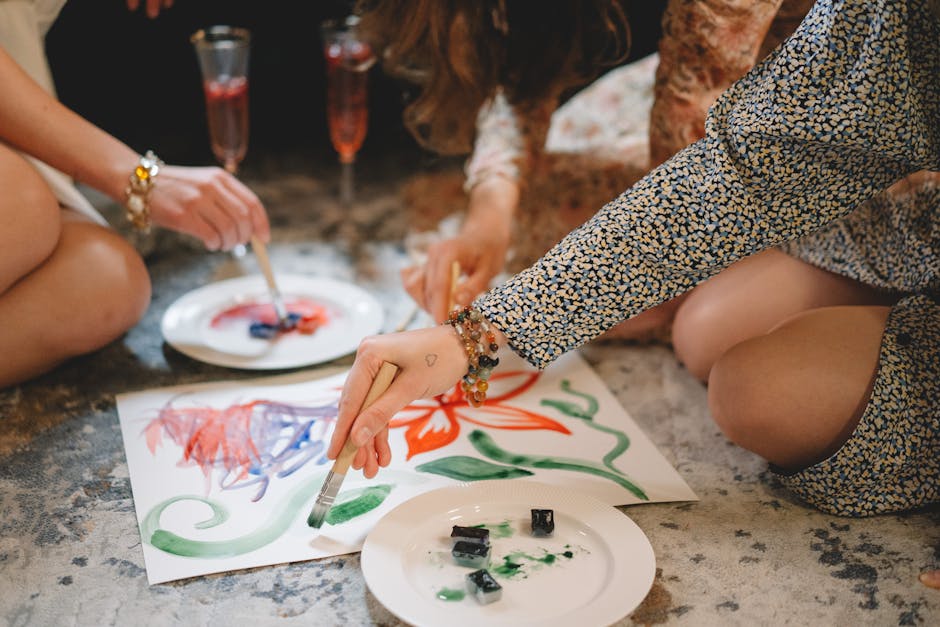In today’s fast-paced world, prioritizing mental well-being is more crucial than ever. Finding outlets for stress and nurturing a sense of purpose can significantly impact our overall happiness and resilience. Hobbies, particularly those involving crafting, offer a powerful avenue for this enhancement. From intricate knitting patterns to vibrant pottery creations, these activities aren’t merely pursuits; they are potent tools for bolstering mental health.
A key benefit of engaging in hobbies and crafts lies in their ability to foster a sense of accomplishment. The act of creating something tangible, from a meticulously sewn quilt to a meticulously painted portrait, can be profoundly satisfying. This tangible output fuels feelings of pride and self-efficacy, positively impacting self-esteem and reducing feelings of inadequacy. Witnessing the transformation of raw materials into a finished product can be deeply rewarding, providing a tangible and gratifying affirmation of one’s capabilities.
Furthermore, crafting activities often involve focused attention and concentration. The intricate details required in many crafts necessitate a level of mindfulness that helps to quiet the incessant chatter of the mind. Tasks like meticulously arranging beads, precisely shaping clay, or deftly weaving yarn demand present-moment focus. This concentration acts as a powerful antidote to stress and anxiety, drawing the mind away from overwhelming thoughts and into a state of peaceful engagement. This meditative quality, inherent in many crafting endeavors, can induce a sense of calm and serenity.
Creative exploration through hobbies, such as painting or sculpting, presents a path to self-expression. These activities allow individuals to communicate their inner thoughts, emotions, and experiences through artistic mediums. The act of transforming abstract ideas and feelings into tangible creations empowers individuals to connect with their creative selves, fostering a sense of authenticity and personal growth. Unleashing this creative energy can be remarkably therapeutic, enabling individuals to explore and understand their inner landscapes.
Moreover, the social aspect of many crafting communities contributes significantly to mental well-being. Joining a knitting group, pottery class, or online crafting forum can foster connections and create a sense of belonging. Sharing experiences, learning new techniques, and exchanging ideas with like-minded individuals creates a supportive environment. This social interaction counters feelings of isolation and loneliness, providing a platform for building relationships and fostering a sense of community.
Moreover, the mindful engagement inherent in crafting activities often reduces stress and anxiety. The rhythmic movements, repetitive tasks, and focused attention required in activities like sewing, knitting, or quilting can have a calming effect, similar to the effects of meditation. This calming effect can be beneficial for individuals experiencing heightened stress levels, enabling them to regain composure and find tranquility. The repetitive motions can have a therapeutic effect, similar to meditation, inducing a state of presence and reducing the mind’s tendency to dwell on stressful thoughts.
Beyond the immediate benefits, hobbies and crafts can instill a sense of purpose and structure in one’s life. This sense of purpose can be particularly valuable for individuals facing transitions, such as career changes or periods of uncertainty. The routine and engagement of crafting activities can provide a sense of normalcy and stability, offering a refuge from the pressures of everyday life. Participating in projects and setting goals, associated with hobbies, can help establish a sense of accomplishment and fulfillment, contributing to overall mental well-being.
However, it’s important to acknowledge that hobbies aren’t a universal cure-all for mental health issues. While immensely beneficial, these activities should not replace professional help if struggling with severe mental health concerns. Individuals with pre-existing mental health conditions should consult with their healthcare providers before undertaking new hobbies or crafts, especially if they have concerns about potential triggers or intensifying symptoms.
In conclusion, hobbies and crafts, far from being mere diversions, can be potent tools for boosting mental well-being. From fostering a sense of accomplishment to nurturing creative expression, from promoting mindfulness to providing social connections, these activities offer myriad pathways to a healthier and happier mind. They are not only a source of entertainment but also a pathway to greater self-awareness, emotional regulation, and a renewed sense of purpose. Integrating these activities into one’s life can be a significant step towards a more fulfilling and resilient existence. Embarking on a creative journey, whether it involves intricate embroidery or vibrant pottery, can be an investment in one’s mental well-being, enriching life beyond measure.
